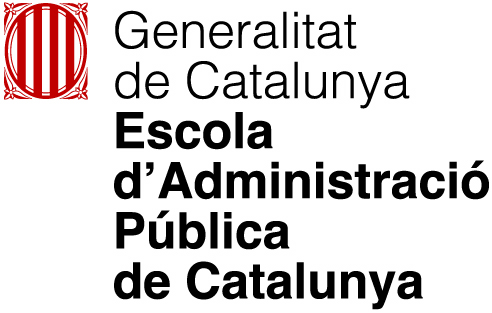How to improve the language used by public authorities together with the public
The UOC is leading a study to evaluate the Government of Catalonia's strategy for plain language and clear communicationThe research team is developing a methodology to objectively analyse how easy the texts produced by public authorities are to understand

The public often complain that the language that public authorities use to communicate with them is difficult to understand. For this reason, various initiatives have been launched to make communications easier to understand and facilitate access to procedures and queries. Now, researchers from the Universitat Oberta de Catalunya (UOC) are participating in a new study, promoted by the Government of Catalonia, to evaluate the clear communication measures implemented by the Government in recent years.
"The aim is to measure, as objectively as possible, whether these measures have improved understanding by the public, while ensuring procedures are still legally effective, and to identify areas for improvement," explained the project leader, Ona Domènech, member of teaching staff and researcher with the Language, culture and identity in a global era (IDENTICAT) research group at the UOC's Faculty of Arts and Humanities. Albert Morales, member of the same faculty and a researcher with the Interinstitutional Research Group in Linguistic Applications (GRIAL), is also participating in the project.
“Democratic states have an obligation to ensure public services are accessible to all and the use of plain language is essential”
The research team is completed by Cristina Gelpí, a researcher at Pompeu Fabra University and a course instructor at the UOC, plus staff from the Government of Catalonia who are involved in implementing the measures to promote clear communication. Finally, there is a representative of the Easy-to-Read Association, a non-profit organization that works to make reading, culture and information accessible, with special attention to people with reading difficulties.
From plain language to clear communication
Plain language is a simple and efficient writing style that allows readers to easily understand written text. It is based on the use of concise and clear expressions, an orderly language structure, and good document design. It is a communicative approach that the Catalan government began to incorporate in the 1990s and which Domènech believes plays a key role in how the public authority operates.
"In today's information and communication societies, democratic states have an obligation to ensure public services are accessible to all. The use of plain language is essential, because it ensures that any member of the public can correctly understand all administrative documentation, which is now mostly digitized," she said.
According to Domènech, in recent years, the growing digitalization of society and the implementation of electronic administration, together with other factors such as the ageing of the population and increasing numbers of digital natives with an audiovisual culture, have meant that other aspects of digital life have become important, apart from plain language. "The high level of digitalization of society has added other dimensions to the concept of plain language, such as design and user experience. We can say that we have moved from plain language to clear communication," she noted.
She argues that clear communication can improve fundamental aspects of public administration, such as ensuring people understand legislation and, therefore, their rights and obligations. It also reduces the frustration that many citizens experience when carrying out electronic procedures, reduces the number of complaints, and leads to cost and time savings. "In short, it contributes to a better service for the public and more sustainable, democratic and transparent administrative management," she said.
Eye tracking to analyse website readability and usability
The starting point for the researchers is a review of the measures implemented in this area by public authorities in other countries, to develop a methodology for objectively analysing the level of comprehension of official texts. The research will combine conventional methods, such as automatic legibility analysis, reading comprehension questionnaires and citizen focus groups, with more innovative techniques such as eye tracking. "This technology, which uses a special device to capture how the eyes move over the screen, is widely used and recognized in international research on web readability and usability," Domènech explained.
This combined methodology will be used to analyse and compare two versions (produced before and after the implementation of plain language measures) of a set of files related to different Government of Catalonia administrative procedures. The aim is to measure how well people understand these documents and evaluate the work done so far by the Government of Catalonia to design and draft them.
Immediately applicable results
One of the key features of the project is that the results can be incorporated immediately in the Government of Catalonia Directorate General of Digital Services and Citizen Experience's communication improvement project and applied to its own procedures. The conclusions obtained can also be extrapolated to any Government of Catalonia ministry, especially those that need to undertake similar initiatives. "The methodology used in the project will be applicable to official bodies at other levels, including provincial and municipal bodies, because the project focuses on the content published for procedures, which are a basic form of communication for any level of government," said Domènech.
Another aim of the project is to create a space for sharing knowledge and initiatives that promote teamwork and cooperation on clear Catalan language communication in Catalan-speaking regions.
Government of Catalonia working group on clear communication
Clear communication is one of the target areas in the Catalan Government's plans to reform and improve public services set out in Agreement 217/2024, of 8 October. A commission of experts has been set up to define the strategy for transforming the administration of the Government of Catalonia and improving public services (CETRA). It has 12 working groups linked to the priority areas of the strategy to reimagine, reform and strengthen the public sector. Ona Domènech is a member of the working group on clear communication.
This research, funded by the Public Administration School of Catalonia (EAPC), supports UN Sustainable Development Goals (SDGs) 10, Reduced Inequalities and 16, Peace, Justice and Strong Institutions.
UOC R&I
The UOC's research and innovation (R&I) is helping overcome pressing challenges faced by global societies in the 21st century by studying interactions between technology and human & social sciences with a specific focus on the network society, e-learning and e-health.
Over 500 researchers and more than 50 research groups work in the UOC's seven faculties, its eLearning Research programme and its two research centres: the Internet Interdisciplinary Institute (IN3) and the eHealth Center (eHC).
The university also develops online learning innovations at its eLearning Innovation Center (eLinC), as well as UOC community entrepreneurship and knowledge transfer via the Hubbik platform.
Open knowledge and the goals of the United Nations 2030 Agenda for Sustainable Development serve as strategic pillars for the UOC's teaching, research and innovation. More information: research.uoc.edu.
Experts UOC
-
Ona Domènech Bagaria
Lecturer in the Arts and Humanities Department Director of the bachelor's degree programme in Catalan Language and Literature -
GRIAL researcher
Press contact
-
Anna Torres Garrote





